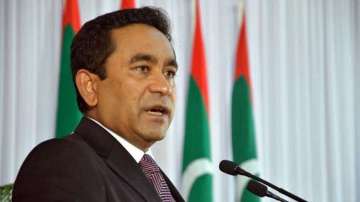Alleging the Commonwealth group unjustly and unfairly, Maldives government has decided to leave the Commonwealth claiming that the 53-nation inter-governmental organisation was discriminatory against it.
The statement by the Foreign Ministry came weeks after the Commonwealth threatened the country with suspension if it failed to show progress in key democratic governance issues by next March.
The Commonwealth seems to be convinced "that the Maldives would be an easy object that can be used, especially in the name of democracy promotion, to increase the organization's own relevance and leverage in international politics," the statement said.
It said the grouping had "treated the Maldives unjustly and unfairly. The Commonwealth has sought to become an active participant in the domestic political discourse in the Maldives, which is contrary to the principles of the charters of the U.N. and the Commonwealth."
Government spokesman Ibrahim Hussain Shihab said the Maldives' withdrawal from the 53-state grouping would take effect immediately.
The Commonwealth had warned the Maldives last month of suspension if it failed to show progress in six areas, including freedom for detained political leaders, freedom of speech and assembly, strengthened separation of powers, and independence of the judiciary.
Maldives, known for its luxury tourist resorts, became a multiparty democracy in 2008 after decades of autocratic rule. President Yameen Abdul Gayoom has been accused of erasing much of the democratic gains since being elected in 2013.
A number of political leaders, including former President Mohamed Nasheed, two of Gayoom's former allies — a vice-president and a defense minister — and a political party leader have been given lengthy prison sentences after trials on terrorism charges criticized for lack of due process.
The state also tightly controls public gatherings and recently enacted a defamation law with hefty fines and jail terms for journalists and social media users.
(With inputs from AP)
Latest World News
